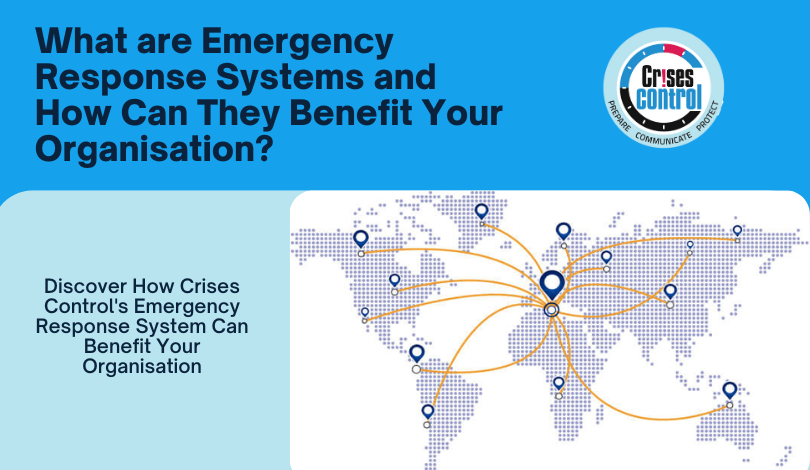In today’s fast-paced business world, organisations need to be prepared for any eventuality, especially in case of an emergency. An emergency response system (ERA) is an essential tool for organisations of all sizes, helping them respond quickly and effectively to any unforeseen events. In this blog post, we will explore what emergency response systems are, why they are vital, and how they can benefit your organisation.
What are Emergency Response Systems?
Emergency response systems are software platforms that provide organisations with real-time information about critical incidents, such as natural disasters, cyber-attacks, and other disruptive events. They enable organisations to communicate with their stakeholders quickly and effectively, allowing them to respond to any situation with speed and precision.
How Can Emergency Response Systems Benefit Your Organisation?
Emergency response systems can benefit organisations in a variety of ways. Firstly, they help improve response times, enabling organisations to react quickly to any potential threats. This means that organisations can take immediate action to minimise the impact of the event and ensure that all staff and stakeholders are safe.
Secondly, ERS help organisations to communicate effectively during an emergency. They enable organisations to share critical information with their stakeholders in real-time, ensuring that everyone has the information they need to respond appropriately to the situation. Crises Control, for example, provides multi-channel communication capabilities, including SMS, voice, email, and push notifications, to ensure that organisations can communicate with their stakeholders quickly and effectively.
When is an Emergency Response System Vital?
Emergency response systems are vital for any organisation that wants to be prepared for an emergency. They are especially important for organisations that operate in high-risk industries, such as healthcare, finance, and critical infrastructure. These organisations need to have a robust emergency response system in place to ensure that they can respond quickly and effectively to any critical incidents that may occur.
What Other Uses Can an Emergency Response System Have for Your Organisation?
In addition to responding to emergencies, ERS can have other uses for your organisation. For example, they can be used to streamline communication processes, making it easier for staff to collaborate and share information. They can also be used to manage non-emergency events, such as IT outages, service disruptions, and other business continuity issues. By using an emergency response system like Crises Control, organisations can have a single platform for managing all their critical events, allowing them to respond quickly and efficiently to any situation.
In conclusion, ERS are an essential tool for organisations of all sizes, helping them respond quickly and effectively to any unforeseen events. By using an emergency response system like Crises Control, organisations can improve their response times, communicate more effectively, and be better prepared for any critical incidents that may occur. With its advanced features, such as real-time notifications, incident management, and crisis communications capabilities, Crises Control is the ideal solution for any organisation that wants to be prepared for an emergency. To learn more about how Crises Control can benefit your organisation, get in touch with our team today.







